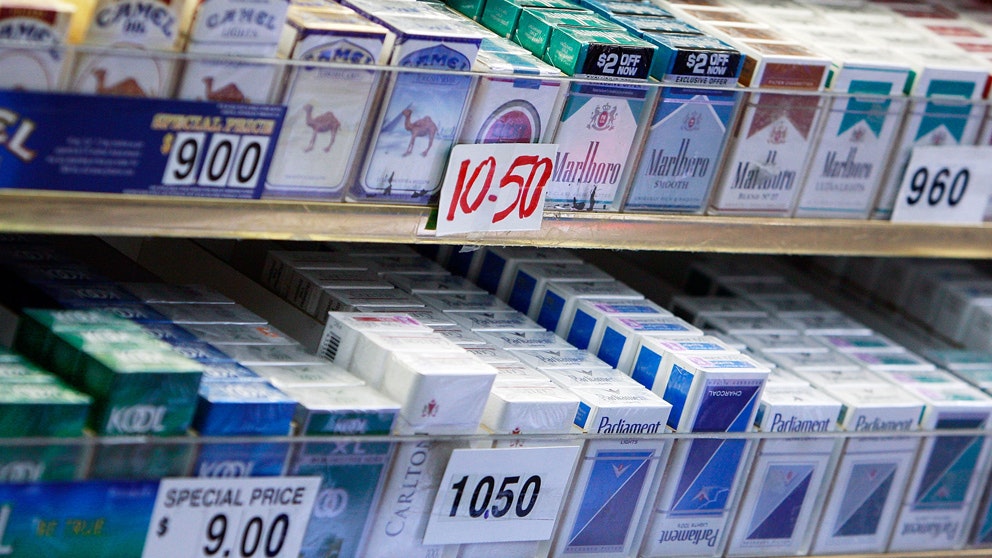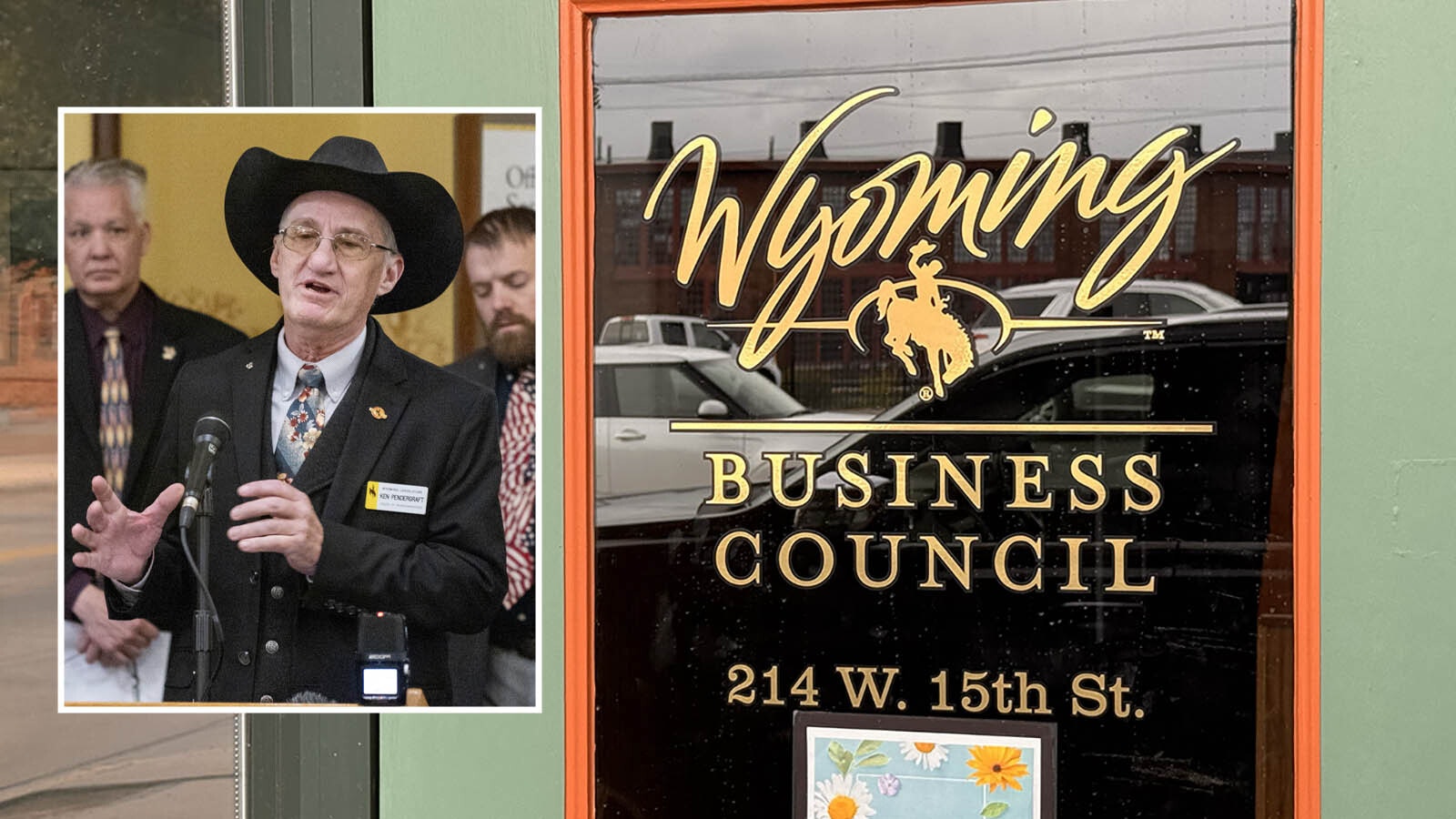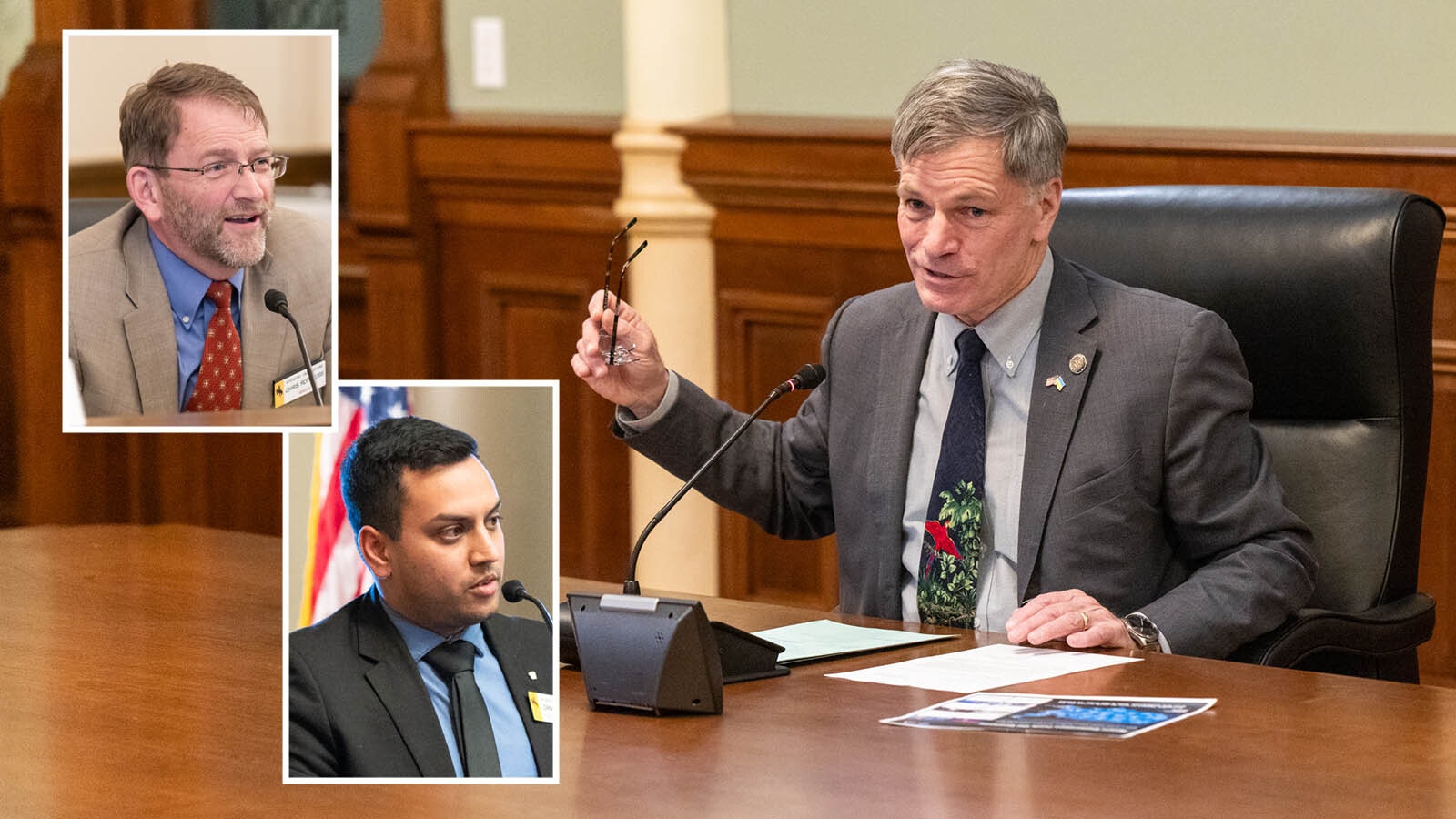Wyoming lawmakers on Wednesday voted to raise cigarette state excise taxes from 60 cents a pack to $1.04.
Health advocates petitioned the Legislature’s Joint Revenue Committee during its Wednesday meeting in Casper, for a hike to more than $1.60 per pack, to curb smoking habits and cut down on statewide health costs
Opponents of the tax, however, said the sharp increase would discourage Coloradans and other highly-taxed smokers from crossing state lines to shop in Wyoming. They also called the proposed increase a “regressive tax,” that could harm poor people disproportionately.
Rep. Tim Hallinan, R-Gillette, proposed a compromise.
“We’ve had this bill before us for the last 10 years and it’s been beat every time,” said Hallinan, who is a retired doctor.
He said a 45-cent increase per pack of cigarettes instead of a $1 addition could discourage young smokers “somewhat” from taking up the habit, while not obliterating out-of-staters’ trips into Wyoming to stock up on cigarettes, fuel and liquor.
The bill will face scrutiny from the entire Legislature in its January session, and can only become law if passed by a majority vote of the State Senate and House of Representatives.
Taxes And Teens
Wyoming ranks 14th in the nation in smoker population, at 18.4%.
West Virginia has the most smokers at 23.8%, and Utah has the least at 7.9%, according to worldpopulationreview.com.
In nearby states with higher cigarette taxes, fewer teens smoke, according to Jan Cartwright, of the Wyoming Public Health Association.
Cartright told the committee that 15.7% of high schoolers smoke in Wyoming.
In Montana, where the state excise tax rate is at $1.70 per pack, 7.7% of high schoolers smoke. Colorado has a $1.94 state excise tax and a high-school student smoking rate of 3.3%. For Utah ($1.70 in state excise tax), 2.2% of high-school aged teens smoke, and for South Dakota ($1.53), 12% of high schoolers smoke, said Cartwright.
“Prevention is the reason for a tax, from a health standpoint,” she said.
Health Insurance Premiums
Other health advocates addressed the committee, saying a sharp tax hike would be the best deterrent for youth and low-income smokers.
Kristin Page-Nei with the American Cancer Society said cigarettes are a drain on Wyoming healthcare and insurance funds.
“Remember that tobacco really does cost the state of Wyoming a lot of money,” she said. “Not just taxpayers, but we as individuals who pay premiums for health insurance as well.”
Page-Nei also proposed a tax increase on all tobacco products so that users would not simply switch to other types of tobacco.
‘Our Citizens’
Mike Moser, executive director at the Wyoming State Liquor Association, said he opposed the tax because it’s an unfair tax against one industry over others.
“You’re singling out a specific person for whatever they choose to do,” said Moser. “A cigarette smoker will pay over 50% the amount of that pack in taxes. I don’t know of any other product that’s taxed at that level.”
Moser said the state’s retailers would be harmed by the move, especially on the borders near Nebraska and Idaho – which have low cigarette taxes – and surrounding the Wind River Indian Reservation, where cigarette taxation is minimal.
“You may hate smokers. Maybe you think they’re the most disgusting creatures known to mankind,” said Moser. “But on the other hand they’re our people; they’re our friends, they’re our citizens, and I don’t think this tax is appropriate at this time.”
Grey Markets
Ashley Harpstreith, executive director at Wyoming Taxpayers Association, disputed the claim that raising the tax would cut smoking habits significantly.
“The true behavior modification is that the sales will go elsewhere, including the grey and black markets, reservations and internet – ultimately destabilizing Wyoming’s current tax system.”
Harpstreith said Wyomingites are already paying millions in taxes. She called the proposed cigarette tax a “regressive” tax because it would disproportionately harm low-income citizens, who are statistically more likely to smoke than middle- and high-income residents.
Reservations, Tax Dodging
Committee Co-Chair Sen. Cale Case, R-Lander, voted in favor of the tax increase but said it would not work properly unless the tribal governments on the reservation agreed to raise cigarette taxes as well.
Cigarettes on the reservation are not fully taxed. They are about $1 less per pack than in the nearby non-reservation community of Riverton, according to comparisons made Friday by Cowboy State Daily.
Cigarette retailers on the reservation give a percentage of funds to the state Department of Revenue each year. The percentage is based on a rough estimate of how many non-natives buy cigarettes on the reservation.
Case said the estimate is an old one and “no doubt out of whack,” since multiple casinos have opened on the reservation since it was made, drawing more non-natives to buy cigarettes in the area.
Wyoming Gov. Mark Gordon is working on a compact with the Eastern Shoshone and Northern Arapaho tribes, both of Wyoming, that would establish a tax on all cigarettes but remit a percentage of the tax revenue to the tribal governments, as revenue.
The tribes haven’t committed to the deal.
“They’re giving it some thought,” said Case, who is also a member of the Legislature’s Tribal Relations Meeting.
Roll Call
The bill cleared the committee 7-5.
Those voting in favor of the tax were:
Republican Sens. Cale Case (Lander), Fred Baldwin (Kemmerer), Stephan Pappas (Cheyenne), Wendy Schuler (Evanston); Independent Rep. Jim Roscoe (Wilson) and Democratic Rep. Mike Yin (Jackson).
Those voting against the tax were:
Republican Sen. Tom James (Green River), and Reps. Mark Baker (Green River), Bill Henderson (Cheyenne), Mark Jennings (Sheridan) and Chuck Gray (Casper).
Gray’s father, Jan Charles Gray, testified against the tax during the committee meeting.
Committee Co-Chair Rep. Steve Harshman, R-Casper, did not vote as he’d left the meeting moments earlier.





